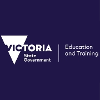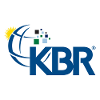Australia Job Openings

Schools (Government)
Teacher - Don Valley campus - Family Leave
FULL TIME
November 4, 2024
Job Description
Location Profile
Applications are sort for a teacher to work at our Don Valley campus to fill a Family Leave PositionThe School for Student Leadership (Trading as The Alpine School) is an exciting and unique year-nine specialist school. The school has been operating for 24 years and more than 10,000 students have participated in that time both in Victorian and when an international operation was conducted in China from 2014-2019. It currently consists of four campuses
All campuses are in regional Victoria and include:
¿ Alpine School Campus, Dinner Plain.
¿ Snowy River Campus, Marlo
¿ Gnurad-Gundidj Campus, Noorat-Glenormiston.
¿ Don Valley Campus, Don Valley.
Forty-five students live, learn, work, play, recreate and undertake adventures at the schools in a unique (in State Education) highly supported leadership education program. The school has modelled the educational program on an Experiential Education model, and at its core has a project/ inquiry learning and social-enterprise focus.
A highly developed curriculum, pedagogical, assessment and reporting approach relates to the Victorian Curriculum F-10 Capabilities.
An extensive outdoor, environmental and adventure education program is an embedded part of the school learning program. All students participate fully in this as it is an essential component of the character education aspect of leadership and experiential education.
While the school has a highly developed outdoor and adventure education curriculum that honours the Do E and Outdoor Education Policy and operational provisions, the teaching and learning program should be of particular interest.
The curriculum revolves around nine learning concepts that have evolved out of the school values and align with and reflect the F-10 Capabilities. The school recognises that the concept of leadership is contested and has an agreed position that these concepts combine to measure this construct.
The main visible outcome of the program is the Community Learning Project. This is a student-led and driven project that students implement on return to their home communities upon returning home.
A CLP is referred to as triple ¿ ¿A¿ rated learning because it is:
- Authentic. It is genuinely developed and delivered by students
- Agentic. The project is owned by the students, and they have control over it.
- Actioned. The students have to DO something to deliver a project. Leadership is a ¿verb.¿
Core Moral Purpose
The core-moral purpose of the school rests in a mixture of the following:
- best practice middle years education, including appreciating the works of Pendergast (2017) Teaching Middle Years and Bandura (2005) Self Efficacy Beliefs of Adolescents.
- a contemporary interpretation of the adolescent "rite of passage',
- "long service leave" for year nine students, as applied to many Australian industrial settings,
- reinterpretation of contemporary paediatric and adolescent psychological research as applied to education,
- understanding the implications of a student-centred approach to education including
- what it means to be a learner in the 21st Century and connection with Nature (Louv).
- An interpretation of Tuckman¿s forming-storming-norming-performing model.
Middle year's experiential educational best practice informs our curriculum content and pedagogy. These include including fundamentally engaging activities as the basis of our work, project-based work, inquiry-based learning, experiential learning, working on concrete work tasks, teamwork, integrated use of ICT, reflective practices, meta-cognitive learning, thinking, and learning profiling and community living. The deliberate limitation of resources and the creation of learning/decision-making tension points, among many others are keys to the success of learning.
Rite of Passage
The contemporary "Rite of Passage" refers to that which many say has been lost in the modern, western capitalist paradigm. Put simply, many traditional cultures incorporated a period, at about puberty, of; separation from family, minimal communication with family/community, undertaking a significant, prolonged, and arduous journey in the wilderness, undergoing physical/emotional hardship, solving real problems concerning "survival", learning the spiritual mores of the community from elders and other significant adults among other undertakings. Often, the successful reintegration to community/society after such an undertaking, such a "rite", included in scarring or cicatrisation as a mark of successfully undertaking this hardship/separation/reintegration into the community and as recognition of the acceptance into and responsibilities of, an "adult".
Many suggest that an extended period of separation and learning such as that offered by the Alpine School program can represent a contemporary rite of passage.
Long Service Leave
In many organisational structures in Australia, after ten years of continual service, members of that organisation are entitled to a period of leave from their role for re-creation, renewal, reinvigoration, rediscovery and so on as both a mark of respect and in preparation for the next period of work and life. Year nine students have been at school for ten years and some say deserve a period of "long service leave". In this construct, the leave must require undertaking tasks, learning and experiences that are fundamentally different to those of their normal existence. It is because of this among other reasons, that traditional "school work" should not be undertaken in this residential learning environment. Students are undertaking "new' learning that is fundamentally about them and their future selves and should not be confused with the more teacher-centric model of education from which many have come. The learning they are undertaking is hugely valuable in itself. We have to re-assign a value to the learning undertaken in this 'long-service leave" construct.
Adolescent Neuro-Psycho-Emotional development
This adolescent stage in a young person's life involves reference to Biddulph, Louv, Carr-Gregg and other contemporary authors. Biddulph refers to the three stages of children¿s development, the third beginning at around puberty and involving attachment and association/mentoring/role-modelling by a significant adult who is not a direct member of the young person's immediate family. There is evidence around this important and formative stage in a teenager¿s brain development: these young brains are still works in progress. The teacher, educator, scout/guide master, sport coach and so on tends to be that person in our society. Clearly this person needs to accept the considerable and onerous trust and responsibility that is placed upon them. Reference is made to Richard Louv regarding his identified construct of Nature Deficit Disorder (NDD). Among others, NDD refers to that phenomenon where medical practitioners are identifying behaviours in young people that can be attributed to lack of exposure to the natural environment, unstructured play in that environment, exploration of the natural environment, getting physically dirty and physically touching and personally experiencing that environment as opposed to experiencing it through a digital media.
Maslow and Hierarchy of Needs
The model of care and welfare that is provided to our students is critical to the success of the program and the student outcomes we aim for. Maslow describes a hierarchy of needs that generally must be achieved for all of us to progress through to a high state of awareness and in our circumstance, true and life-long learning. At a fundamental level, students need to have satisfied basic physiological needs. We provide a safe, well nurtured learning and living environment with a focus on healthy eating, exercise, sleep, and food: there is neither junk food nor sweets/lollies/bonbons allowed, no chewing gum and no cordial or fizzy drinks. Good accommodation, safe and secure ablution areas and access to healthy exercise is critical. We believe in creating a sense of care and belonging, community and mutual respect that allows students to feel safe and cared for, a part of a real and living community in which they are active participants, not observers or passengers. A high moral and participative standard are expected. We believe that through a close sense of community, students can develop a strong sense of self, what they believe and value, respect, and valuing of and for diversity and for others and a robust self-esteem and self-efficacy. It is only through this deliberate process and supported environment can this progression be made.
Glasser and Choice Theory
We subscribe to this approach and view every opportunity with a student as a learning opportunity. We do not subscribe to a punitive approach: we do not punish students. That does not mean we do not hold behaviours to account: students are held very accountable for their choices, actions, and inactions. To gain an understanding of student behaviour, we interrogate ourselves and each other as to the nature of behaviours: are the behaviours we are witnessing normal adolescent behaviours? Many behaviours we as adults witness in adolescents might challenge our adult sensibilities: but they are not deliberate behaviours. If not, we always fundamentally seek to understand the cause or drive of such an abnormal behaviour. In every instance, unusual behaviour is motivated by a need that we as both the educators and adults in the care model must seek to understand.
We also believe that adolescents do not need ¿fixing up.¿ They have not come to our program because they are somehow ¿broken¿ or they need to be modified in some way. Ours is a school not a camp, students learn (mostly about themselves) and often the experience is transformational.
Much of our program focusses the students on themselves, learning about relationships and learning about the community in which they were residing for a specific amount of time and learning about leadership. As such much of their learning can be organised in the following way:
- Learning how to manage their own behaviour;
- Learning how to manage their own learning;
- Learning how to be responsible for themselves and,
- Learning about and with others.
Tuckman and separation
Many may be familiar with the Tuckman model (Bruce Tuckman 1965). The forming¿storming¿norming¿performing model of group development was first proposed by Bruce Tuckman in 1965, who said that these phases are all necessary and inevitable in order for a team to grow, face up to challenges, tackle problems, find solutions, plan work, and deliver results. As Tuckman knew these inevitable phases were critical to team growth and development, he hypothesized that along with these factors that interpersonal relationships and task activity would enhance the four-stage model that is needed to successfully navigate and create and effective group function.
We acknowledge and recognise that there may be additional phases and in particular the first is ¿mourning¿ which is related to an inevitable separation anxiety. This may or may not be a large or small issue for students in the first week(s) of the program.
We also acknowledge that the strong sense of esprit de corp and community that is created by such a shared and long experience is also difficult to dismantle without social and emotional side-effects. We call this the ¿adjourning¿ stage.
When students experience the deconstruction of their community by the completion and conclusion of the experience, it can manifest in compensatory behaviours on return home and to the regular school.
Parents/families/carers and home schools should be made very aware of the significance of the deconstruction phase and the variability of return for every student.
We acknowledge that students will not ¿reintegrate¿ as they are for the most part fundamentally different because of the experience being away. Integrations implies a return to normality whereas there is a recognition that as a result of the experience and the ¿rite of passage,¿ a different person has returned, and their stakeholders will need a period to readjust to them.
21st Century Learning
We also subscribe to a contemporary view of 21st Century Learning. Louv (referenced above) notes that the world is becoming an increasingly hostile and scary place: parents are less and less likely to allow their children out into the wild dangerous world. He notes that with the ubiquitous use of technology, it is now more than ever that we need the natural world. The more technology we have, the more nature we need. We also note that every student we now see has only been to school in the 21st Century. They are mostly educated by teachers (decreasingly so as the third decade of the century unfolds) who went to school in the 20th Century. They exist in a school system that was developed in the 18th Century. If ever there was a time to do education differently, it is now.
These converging concepts provide a powerful rationale and significant "moral purpose' or central belief for undertaking our programs. Our campuses have less curriculum inertia than many system models, as there is a new cohort each term. Review, renewal, and organisational reflection are encouraged, and it is hoped that innovation is a key feature of our programs. Educational and balanced risk taking is encouraged. Change is a feature of our organisation, introspection and challenging mores and beliefs is encouraged. We adopt all these curriculum innovations and are an integrated curriculum model. We actively promote the importance of conceptual and practical preparation-separation-reintegration model and minimal parental contact. Separation anxiety is a part of our experience, and we work with the student to cope with their incarnation of this emotional response. We believe this is an essential component for the success of the program. Students undertake expeditions and we encourage them to explore and get close to the natural world.
Every student benefits from the experience and every student will acknowledge that the experience is at times extremely challenging. They return home and after a period of adjustment, every student in our experience will go on to better outcomes at school because of the "rite", separation, relationship with a significant adult, and exposure and relationship with the outdoors and natural environment. Our research shows that students are better learners, more focussed, more settled, have better medium- and long-term goals, and can undertake practices to achieve those goals. They do academically better at school and are more settled and considerate at home.
While the measured outcomes point to the success and value of the program (Ato SS, PIVOT data, Parents survey data and many co-authored research papers), for many students the impact and learning is deferred. It can take time for many to fully appreciate the nature and value of an extended residential experience.
Beliefs and Values
The school has developed a core set of beliefs and values which underpin the school operations, curriculum, assessment, and program decision making. The successful applicant should show in their application an alignment with and commitment to these core values. We Believe in and Value:
- Self-Belief.
- Connectedness
- Relationships
Roles and responsibilities specific to the setting
As a result of the multi-campus operation and the residential 9-24/7 operation on each campus, the role requires a person with a flexible, enthusiastic, and team-oriented approach. All staff work in a close team environment with their colleagues, and a culture of collaboration, sharing and feedback permeates this relationship.
- The Principal is the instructional leader in the school, the Ex-Officio member of council, direct line-manager to all staff but delegates this responsibility as required.
- The school Principal is currently primarily based at Snowy Campus and will be often mobile.
- The Campus Principals and the Leading Teachers with the Generalists will form the core of the teaching staff.
- Leading Teachers will be familiar with aspects of contemporary DET management practices.
- The Business Manager has a vital advisory role with both the Principal and the Campus Principals in making and supporting resourcing decisions.
- The Education Support Staff are intrinsically connected to the successful outcomes that the school aims for.
- The kitchen and catering model is critical to the success of the learning program and the staff follow a common approach to healthy food for growing adolescents.
- The school has a Community of Practice approach to ensure high quality outcomes for students, to ensure consistency of practice between teachers, classes, care and supervision, ICT, ICT management, catering and food provision, outdoor and adventure activities, campuses, and days, uses evidence and data and privileging time for school strategic goals.
- The operational budget of the multi-campus school is in the order of $9-$10m per annum. The school generates a cash income through parent contributions via home schools.
- The governance and leadership model of the School for Student Leadership is unique in the Victorian Education system. The Governance and Leadership models comprise one School Council and a single Principal. The school council, nominated by the education minister, consists of highly regarded members of the Victorian community. There are past students, industry, education and Koorie community representatives on the school council.
- The school has a MOU relationship with VAEAI and KAE to ensure the program is accessible for Koorie students and is culturally inclusive.
- The School Principal, Business Manager, Campus Principals and Leading Teachers form the School Leadership Team.
- The Business Manager is the Secretary of the School Council and has a close working relationship with the Principal, School Council President, and Finance Committee.
- A Campus Principal and Leading Teacher comprise the leadership team at a campus. The LT oversees the pedagogical program.
- A Digital Technologies Coordinator leads and implements the ICT program across the school.
- With this model, a member of the leadership team can be on-site at the school on at least one campus most days as the operation of the organisation is 24/7.
- Generally, the Principal is on call 24/7 for the entire program duration each term.
- The school, as a co-educational residential school, has two accommodation wings primarily dedicated to students who identify as either male or female, and has a highly trained team of teacher and non-teacher support staff to maximize the desired educational outcomes.
- The school has a particular focus on ensuring the safety of students through the Child Safe Standards. Child Safe reps are at each campus and meet regularly.
- There is provision in the Equal Opportunities Act to select staff based on gender due to the residential nature of the program.
- All teachers have a crucial role in coordinating and delivering a comprehensive outdoor education component of our program. The indoor segment is dedicated to honing skills and strategies, subsequently applied through an experiential model during outdoor activities tailored to each campus. From canoeing and expeditions to surfing, skiing, mountain bike riding, and hiking, our curriculum offers a diverse range of outdoor elements. The outdoor education component is integral to achieving the desired outcomes for our students.
- Because of the unique nature of the operation of the school, the delivery of the programs involves a range of evening, overnight, early morning, public holiday, and weekend duties for all staff. Flexibility in working hours and arrangements is a vital part of this role.
Selection Criteria
SC1 Demonstrated knowledge of the relevant curriculum, including the ability to incorporate the teaching of literacy and numeracy skills. Demonstrated experience in responding to student learning needs.
SC2 Demonstrated experience in planning for and implementing high impact teaching strategies, guided by how students learn, and evaluating the impact of learning and teaching programs on student learning growth.
SC3 Demonstrated experience in monitoring and assessing student learning. Demonstrated experience in using data to inform teaching practice and providing feedback on student learning growth and achievement to students and parents.
SC4 Demonstrated interpersonal and communication skills. Demonstrated experience in establishing and maintaining collaborative relationships with students, parents, colleagues and the broader school community to support student learning, agency, wellbeing and engagement.
SC5 Demonstrated behaviours and attitudes consistent with Department values. Demonstrated experience in reflecting upon practice and engaging in professional learning to continually improve the quality of teaching.
SC6 Demonstrated knowledge, skills or experience in teaching and learning related to education for year- nine students away from usual school settings
Role
The classroom teacher classification comprises two salary ranges- range 1 and range 2. The primary focus of the classroom teacher is on the planning, preparation and teaching of programs to achieve specific student outcomes. The classroom teacher engages in critical reflection and inquiry in order to improve knowledge and skills to effectively engage students and improve their learning.As the classroom teacher gains experience his or her contribution to the school program beyond the classroom increases. All classroom teachers may be required to undertake other duties in addition to their rostered teaching duties provided the responsibility is appropriate to the salary range, qualifications, training and experience of the teacher.
Classroom teacher Range 2
Range 2 classroom teachers play a significant role in assisting the school to improve student performance and educational outcomes determined by the school strategic plan and state-wide priorities and contributing to the development and implementation of school policies and priorities.
A critical component of this work will focus on increasing the knowledge base of staff within their school about student learning and high quality instruction to assist their school to define quality teacher practice.
- Have the content knowledge and pedagogical practice to meet the diverse needs of all students
- Model exemplary classroom practice and mentor/coach other teachers in the school to engage in critical reflection of their practice and to support staff to expand their capacity
- Provide expert advice about the content, processes and strategies that will shape individual and school professional learning
- Supervise and train one or more student teachers
- Assist staff to use student data to inform teaching approaches that enable targets related to improving student learning outcomes to be achieved.
Classroom teacher Range 1
The primary focus of the range 1 classroom teacher is on further developing skills and competencies to become an effective classroom practitioner with structured support and guidance from teachers at higher levels and the planning, preparation and teaching of programs to achieve specific student outcomes. These teachers teach a range of students/classes and are accountable for the effective delivery of their programs. Range 1 classroom teachers are skilled teachers who operate under general direction within clear guidelines following established work practices and documented priorities and may have responsibility for the supervision and training of one or more student teachers.
At range 1, teachers participate in the development of school policies and programs and assist in the implementation of school priorities.
The focus of a range 1 classroom teacher is on classroom management, subject content and teaching practice. New entrants to the teaching profession in their initial teaching years receive structured support, mentoring and guidance from teachers at higher levels.
Under guidance, new entrants to the teaching profession will plan and teach student groups in one or more subjects and are expected to participate in induction programs and other professional learning activities that are designed to ensure the integration of curriculum, assessment and pedagogy across the school.
Teachers at range 1 are responsible for teaching their own classes and may also assist and participate in policy development, project teams and the organisation of co-curricula activities.
Responsibilities
The role of classroom teacher may include but is not limited to:- Direct teaching of groups of students and individual students;
- Contributing to the development, implementation and evaluation of a curriculum area or other curriculum program within the school;
- Undertaking other classroom teaching related and organisational duties as determined by the School Principal;
- Participating in activities such as parent/teacher meetings; staff meetings; camps and excursions;
- Undertaking other non-teaching supervisory duties.
Who May Apply
Teachers currently registered or eligible for registration with the Victorian Institute of Teaching and qualified to teach and/or have demonstrated experience in the curriculum area(s) specified for the position.EEO AND OHS Commitment
Applicants seeking part-time employment are encouraged to apply for any teaching service position and, if they are the successful candidate, request a reduced time fraction. Such requests will be negotiated on a case-by-case basis and will be subject to the operational requirements of the school.The Department of Education is committed to the principles of equal opportunity, and diversity and inclusion for all. We value diversity and inclusion in all forms - gender, religion, ethnicity, LGBTIQ+, disability and neurodiversity. Aboriginal and Torres Strait Islander candidates are strongly encouraged to apply for roles within the Department. The Department recognises that the provision of family friendly, supportive, safe and harassment free workplaces is essential to high performance and promotes flexible work, diversity and safety across all schools and Department workplaces. It is our policy to provide reasonable adjustments for persons with a disability (see Workplace adjustment guidelines).
Additional support and advice on the recruitment process is available to Aboriginal and/or Torres Strait Islanders from the Koorie Outcomes Division (KOD) via marrung@education.vic.gov.au
Child Safe Standards
Victorian government schools are child safe environments. Our schools actively promote the safety and wellbeing of all students, and all school staff are committed to protecting students from abuse or harm in the school environment, in accordance with their legal obligations including child safe standards. All schools have a Child Safety Code of Conduct consistent with the department's exemplar available at:https://www2.education.vic.gov.au/pal/child-safe-standards/policy
DE Values
The department's employees commit to upholding the department's Values: Responsiveness, Integrity, Impartiality, Accountability, Respect, Leadership and Human Rights. The department's Values complement each school's own values and underpin the behaviours the community expects of Victorian public sector employees, including those who work in Victorian Government Schools. Information on the department values is available at:https://www2.education.vic.gov.au/pal/values-department-vps-school-employees/overview
Conditions of Employment
This vacancy is to replace an employee on parental absence and is for a period of seven years or until the employee absent on leave returns to duty at the school.VIT LANTITE
To be eligible for employment, transfer or promotion in the principal or teacher class a person must have provisional or full registration from the Victorian Institute of Teaching. In addition, from 3 August 2020, to be eligible for employment in the principal class or teacher class, a person who graduated from a Victorian Initial Teacher Education program after 1 July 2016, must demonstrate that they have passed the literacy and numeracy test for initial teacher education (LANTITE) requirements. This condition is satisfied where the LANTITE requirement is part of the Victorian Initial Teacher Education program completed by the person.New Job Alerts

Beacon Lighting
Full Time Lighting Designer / Sales Associate
Claremont
FULL TIME
November 19, 2024
View Job Description

Epworth Healthcare
Senior Mental Health Intake Clinician - Psych / OT / SW / Mental Health Nursing
Camberwell
CONTRACT
November 19, 2024
View Job Description
Eastern Health
Clinical Risk Manager Medication Safety & Senior Pharmacist QUM
Box Hill
FULL TIME
November 19, 2024
View Job Description
Looking for similar job?

Department for Education, South Australia
TEMPORARY TEACHER - PORT AUGUSTA WEST PS - JUNIOR PRIMARY
Port Augusta West
PART TIME
September 23, 2024
View Job Description
Brisbane Catholic Education
Mathematics (Middle Years) Teacher
Sunnybank
FULL TIME
September 23, 2024
View Job Description
SchoolHouse
Science and Maths Teacher | Year 7
Melbourne
FULL TIME & PART TIME & CONTRACT
September 23, 2024
View Job Description
TAFE NSW
Teacher of School Based Education Support
FULL TIME
September 23, 2024
View Job Description
Department for Education, South Australia
TEMPORARY TEACHER - RIVERLAND SPECIAL SCHOOL - SPECIAL EDUCATION
PART TIME
September 23, 2024
View Job Description
See What’s New: Schools (Government) Job Opportunities


Schools (Government)
ES 1.3 - Instrumental Music - Voice
Melbourne
PART TIME
November 8, 2024
View Job Description

Schools (Government)
HAPE / Outdoor Education Graduate Teacher
Geelong
FULL TIME
November 8, 2024
View Job Description
New Job Alerts

Beacon Lighting
Full Time Lighting Designer / Sales Associate
Claremont
FULL TIME
November 19, 2024
View Job Description

Epworth Healthcare
Senior Mental Health Intake Clinician - Psych / OT / SW / Mental Health Nursing
Camberwell
CONTRACT
November 19, 2024
View Job Description
Eastern Health
Clinical Risk Manager Medication Safety & Senior Pharmacist QUM
Box Hill
FULL TIME
November 19, 2024
View Job Description